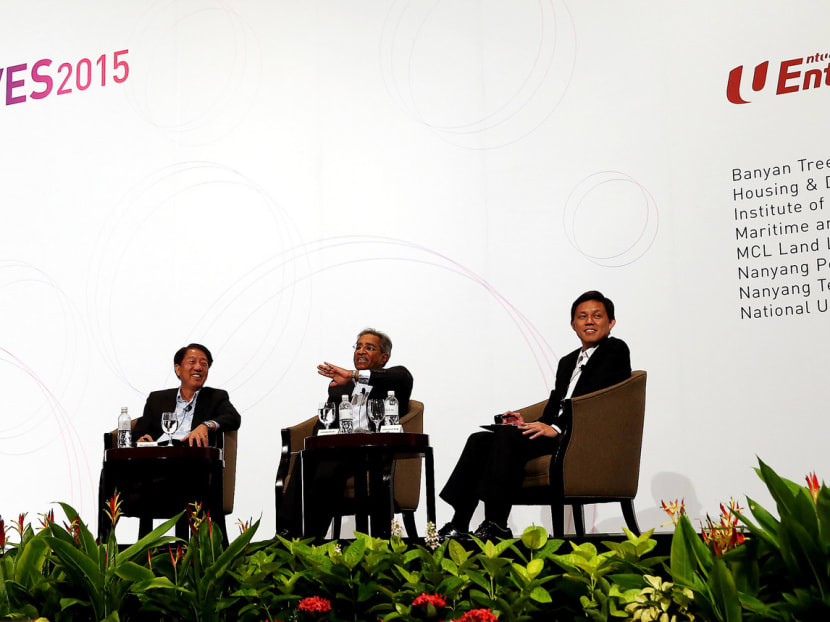For S’pore, being extraordinary is a strategic imperative: Veteran diplomat
SINGAPORE — As a small country that can sometimes be caught in a vicious “rat race”, Singapore’s relevance depends on it being successful, said Mr Bilahari Kausikan, Ambassador-at-large and policy adviser to the Ministry of Foreign Affairs.

The Institute of Policy Studies’ (IPS) Singapore Perspectives 2015 conference, where Deputy Prime Minister Teo Chee Hean and Minister for Social and Family Development Chan Chun Sing engaged the attendees in a dialogue. Photo: Ernest Chua
SINGAPORE — As a small country that can sometimes be caught in a vicious “rat race”, Singapore’s relevance depends on it being successful, said Mr Bilahari Kausikan, Ambassador-at-large and policy adviser to the Ministry of Foreign Affairs.
Speaking at the Institute of Policy Studies’ (IPS) annual Singapore Perspectives conference yesterday, he added that compared with Singapore’s neighbours who are larger and well-endowed with natural resources, it is not enough to be only ordinarily successful.
“To be crass about it, small countries will have fewer options than large countries, but rich, small countries have more options than poor, small countries,” said Mr Kausikan. “To be relevant, we have to be extraordinary and being extraordinary is a strategic imperative.
Singapore’s size and its geopolitical position means being nimble to adapt to a constantly changing and unknowable future is imperative, said the veteran diplomat.
“Since the future in unknowable, adaptation requires nimbleness of thought and action. And thought and action must be based on clinical — some may accuse us of being cold-blooded — understanding of the world at it is, and not as we think it ought to be,” he said.
At yesterday’s conference, which is the first in a series of events by IPS to commemorate Singapore’s jubilee year, speakers examined the roots of Singaporeans and the key choices made in politics, economy and society over the past 50 years.
It was attended by about 900 civil servants, professionals, educators, students and members of civil society groups.
Professor Evelyn Goh from the Australian National University, also a panellist, said that while size was understandably a key concern of survival for Singapore’s forefathers, the country’s future as a sovereign state will be determined by its connectivity in a globalised world.
“We are in a state of the world where no one, no state, is going to be exempt from the challenges of connectivity in globalisation. That means how big you are is less important than how plugged-in you are, and how well you ride or channel or are able to use those increased networks or flows in this globalised era,” she said.
Meanwhile, Dr Linda Lim, professor of strategy at University of Michigan, noted that while competition grows for “global city”-type roles, Singapore can still remain competitive given its strategic location in Southeast Asia.
The Republic’s global mindset has set the focus of Singaporeans on the “rich West”, but the future is in middle-income South-east Asia, the strategy professor said.
She added: “Multinational corporations I’ve interviewed over the past 30, 40 years ... that’s basically what they’re here for, for South-east Asia.
“I think it’s very clear; focus on who you are, what is unique about you. Don’t try and compete with Shanghai, New York or other global cities because you can’t, and because you shouldn’t, and because nobody would reward you for that.”






